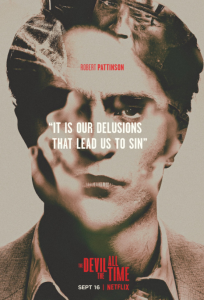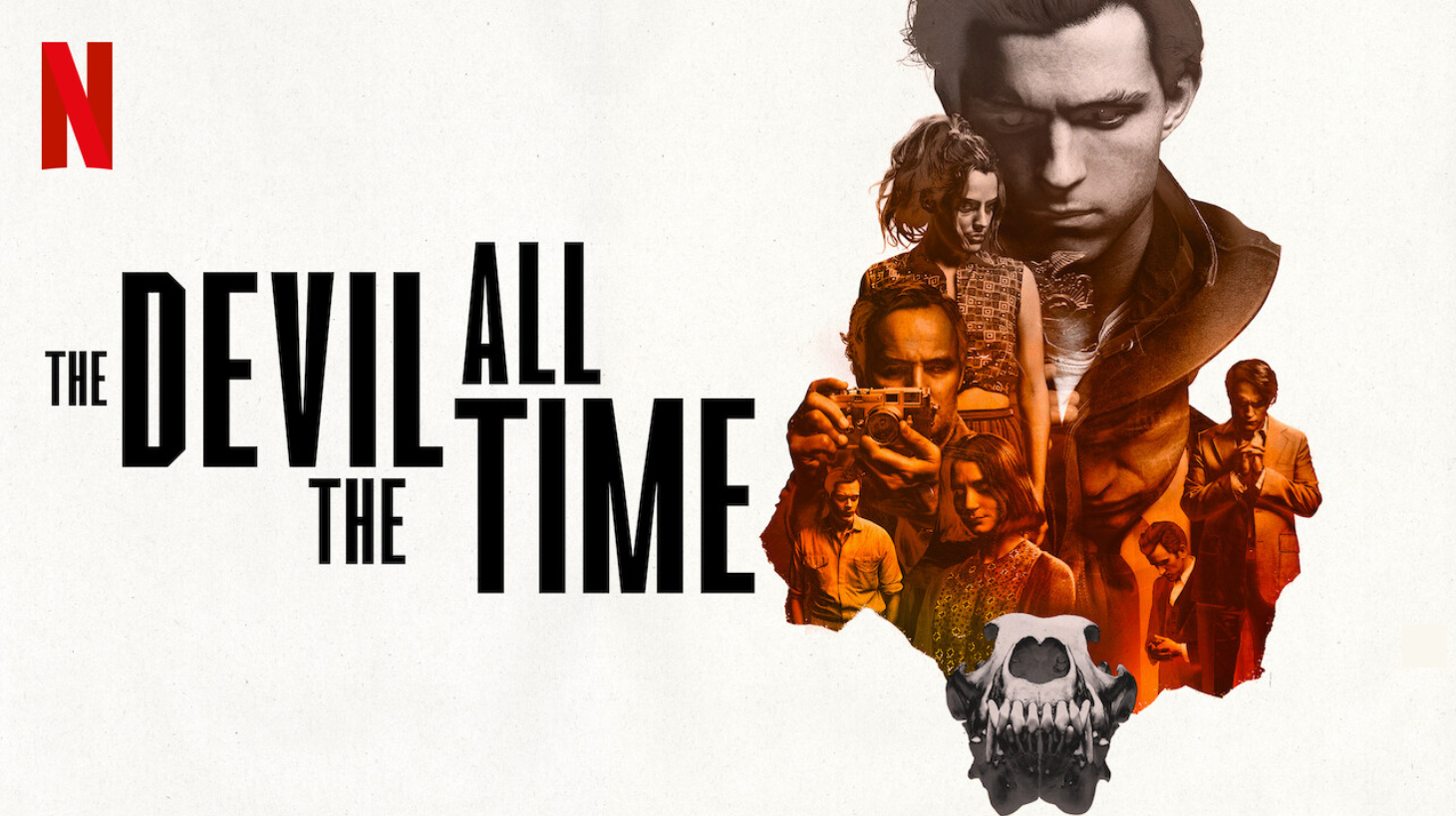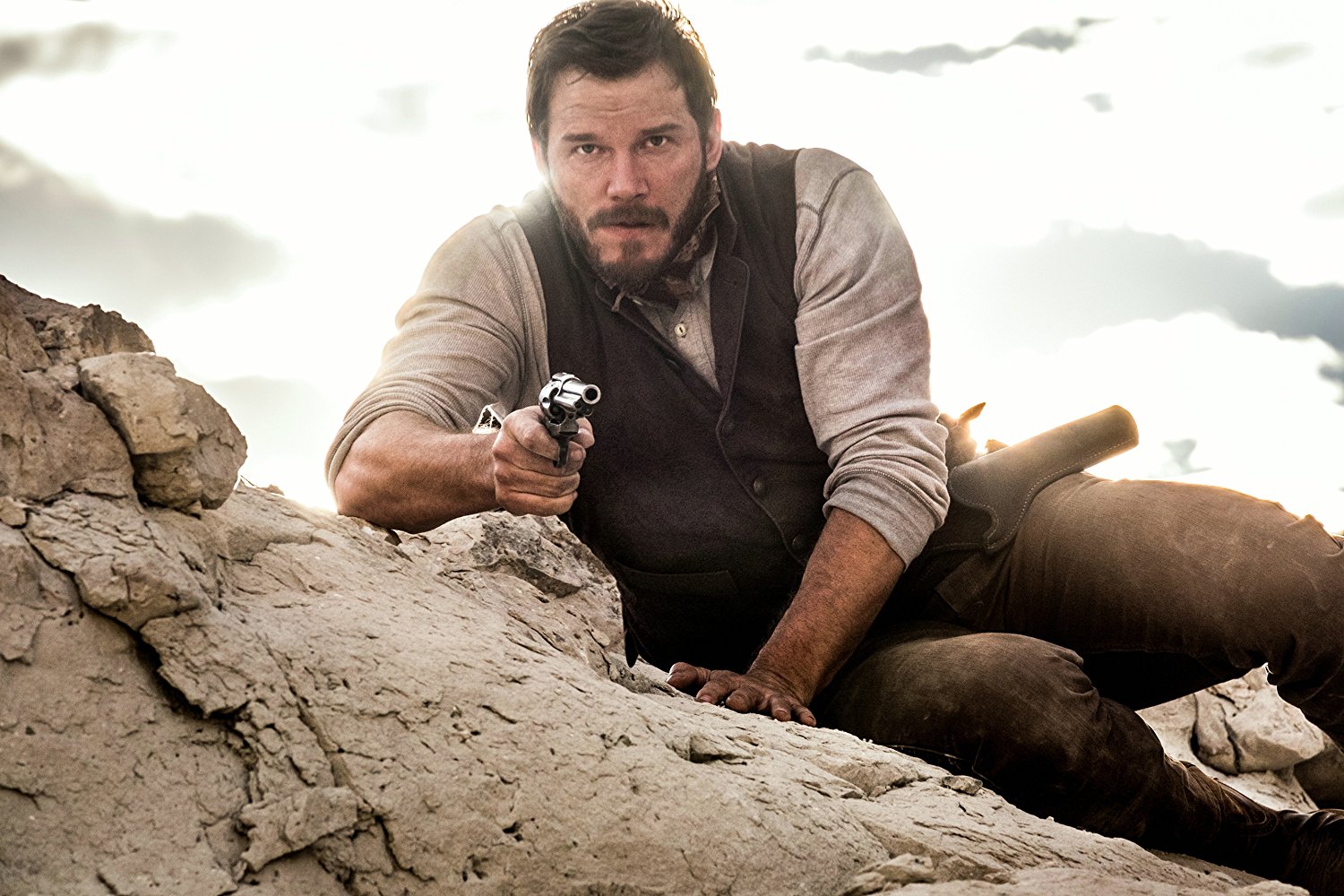KARACHI: With a 7.2 rating on IMDB, The Devil All the Time is an insightful watch, although quite possibly not everyone’s cup of tea. Soon after the trailer of the film was released, the film picked up hype in spite of being released only on Netflix (and a select few number of cinemas). Even so, it can’t be denied that the film encapsulated the cinematic essence of what a gothic film is supposed to be like, and did so successfully.
The Devil All the Time, a psychological thriller, wades into deep waters when it comes to violence, the darkness you find in places you expected light in, the dangers of blind faith, PTSD, a shared bloodthirst that takes various shapes and forms, and an overall gothic feel.
The film brings together Batman’s Robert Pattinson, Spider-Man‘s Tom Holland, and Winter Soldier‘s Sebastian Stan. Its posters do a good job of illustrating how nearly all the characters’ motivations are directed by the way they see faith, and how their faith sees them. While the male lead characters have a rather punishing definition of faith, owing to the times the film is set in (1957 and 1965), the women have a rather rewarding and enlightened one.


Tom Holland plays Arvin Russell, a young boy who has flashbacks of his haunting past. A young Arvin is shown dealing with his father who is tormented by his experiences from the war and suffers from PTSD. Arvin’s father, Willard, is played by Bill Skarsgård. The cancer that is causing his wife (played by Haley Bennett) to stay on her deathbed and count her last few days with him brings back the trauma from his days from the war. Desperate to save his wife, Willard makes some sacrifice that doesn’t go according to plan.
The film hits the subject of sexual abuse in churches with a pretty strong hammer. Preston Teagardin (played by Robert Pattinson) is a preacher, he also happens to be a pedophile who manipulates underaged girls into entering sexual relations with him, calling the act a prayer, and telling girls to take off their clothes to “open themselves up to God”.
These scenes really hit a nerve with the way predatory behavior has been exhibited by men in positions of power, especially in terms of religious authorities, and how they get away with it, through building a persona that makes people deny they could ever do such a thing.
There are moments in the film that will send a shiver down your spine. For instance, the dialogue “only in the presence of death can he truly feel the presence of God” is massively powerful because it is a more insidious projection of how we see death: getting closer to the higher power. The characters of the film just take it a notch further by trying to kill people to feel a higher presence.
The Devil All the Time draws striking similarities between No Country For Old Men and itself. The southern accents, the crimes of passion no one can truly explain the reasons to, and the society in question being so rotten, you question whether it should even be saved.
There is a dialogue in No Country For Old Men which rings true for The Devil All The Time as well. “You never know what worse luck your bad luck has saved you from.” Arvin finally moves away from the wrecked town, anyone who remotely caused the town to be wrecked in the first place has died, and although Arvin barely parts with any happy memories or valuables, his bad luck is still better than the worse luck that could have resulted in him staying.
The Devil All the Time explores how faith could be a dangerous thing if you aren’t fully informed. People live their lives believing faith is all that is required to keep them going, until it tears them apart and they even smile as they go, believing they achieved salvation.
So there are majorly four people the film speaks to People who have faith, those who lost their faith after a tragedy, those who are controlled by faith, and those who control others through faith.













